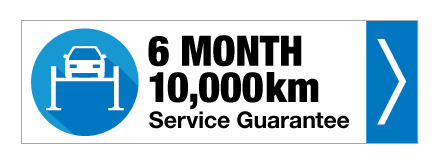When it comes to purchasing a car, finding the perfect match for your lifestyle and budget is key. Whether you’re commuting through bustling city streets, embarking on weekend road trips, or towing heavy loads, selecting the right car can enhance both convenience and comfort. Here are some tips to help you make a smart, informed decision.
1. Assess Your Needs
Start by considering your lifestyle and primary use for the car. Are you someone who frequently drives in urban areas? If so, a compact car with great fuel efficiency may suit you best. Models like the Toyota Yaris or Hyundai i30 offer easy manoeuvrability and low running costs, making them perfect for city dwellers.
For families, space and safety are paramount. SUVs such as the Toyota RAV4 or Mazda CX-5 offer room for kids, prams, and shopping bags while also coming equipped with advanced safety features. Meanwhile, if you enjoy camping or outdoor adventures, a 4×4 or all-wheel drive vehicle, like a Toyota Land Cruiser or Subaru Outback, would be ideal for rugged terrains.
Tradespeople and those towing caravans or boats may require vehicles with higher towing capacities, such as the Ford Ranger or Nissan Navara. These utes provide the power and durability needed for heavy-duty tasks.
2. Budget Planning
Your budget will have a significant impact on your choice. It’s important to consider not just the upfront cost of the car, but also ongoing expenses like fuel, insurance, registration, and maintenance. To get an accurate picture of the total cost of ownership, think about the following:
New vs. Used: While a brand-new car has the appeal of modern features and warranties, a used car can offer significant savings. If you’re opting for a used vehicle, be sure to get a mechanical inspection to avoid unexpected repairs.
Financing Options: If you’re taking out a loan, check different financing options, including dealer finance, personal loans, or novated leases through your employer. Always ensure the monthly payments fit within your budget and don’t overstretch your finances.
Running Costs: Fuel economy, servicing, and parts replacement can vary significantly between models. For example, a smaller car like the Suzuki Swift will have lower fuel costs than a larger SUV or ute.
3. Consider Future Resale Value
In Australia, certain brands and models retain their value better than others. Toyota, Subaru, and Mazda vehicles often top the list for holding strong resale values. This is particularly important if you plan to sell or trade in the car in the next few years. A car with good resale value will save you money in the long term by reducing depreciation costs.
4. Safety and Technology Features
Australia has stringent safety regulations, and many modern cars come equipped with features like advanced driver assistance systems (ADAS), airbags, and stability control. Look for vehicles with high ANCAP safety ratings. Technology like Bluetooth connectivity, GPS, and parking sensors can also enhance your driving experience.
If you’re frequently driving on highways, consider features such as adaptive cruise control and lane-keeping assist, which can reduce stress during long trips. For city driving, parking assistance and a reversing camera can be invaluable.
5. Take It for a Test Drive
Finally, the best way to determine if a car is right for you is to take it for a test drive. This will give you a feel for the vehicle’s comfort, handling, and ease of use. Test it in various conditions—city streets, highways, and parking situations—to ensure it meets your needs.
Conclusion
Finding the right car for your lifestyle and budget involves careful consideration of your specific needs, long-term costs, and practical features. By taking the time to assess what you truly require from a vehicle and balancing that with your financial situation, you can choose the right car for your needs and drive away confident in your decision.



